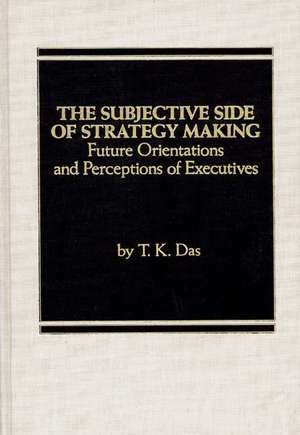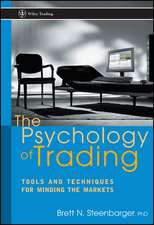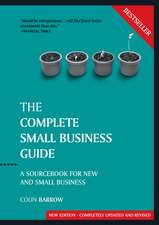The Subjective Side of Strategy Making: Future Orientations and Perceptions of Executives
Autor T. K. Dasen Limba Engleză Hardback – 31 iul 1986
This book proposes a conception of the corporate strategy making process that recognizes the individual strategy maker as a center-stage corporate actor. This individual-centered view of the stategy making process is needed in order to better understand the interplay between objective factors and the subjective perceptions and values of strategy makers. Using a large sample of executives working in two of the ten largest U.S. commercial banks, Das examines empirically the dynamics of two critical aspects of the role of individual strategy makers: future orientation and perceptions of the strategic planning milieu. He discusses the various implications of his findings for further research into the strategy making process. The author demonstrates the utility of individual future orientation in understanding how strategy makers influence the character of the eventual corporate strategy. The results of Das' study help to explain why long-range planning is really more short-range than anyone cares to admit.
Preț: 439.09 lei
Preț vechi: 708.49 lei
-38% Nou
84.02€ • 87.96$ • 69.52£
Carte tipărită la comandă
Livrare economică 07-21 aprilie
Specificații
ISBN-10: 0275923401
Pagini: 292
Dimensiuni: 156 x 234 x 18 mm
Greutate: 0.59 kg
Editura: Praeger Publishers

















